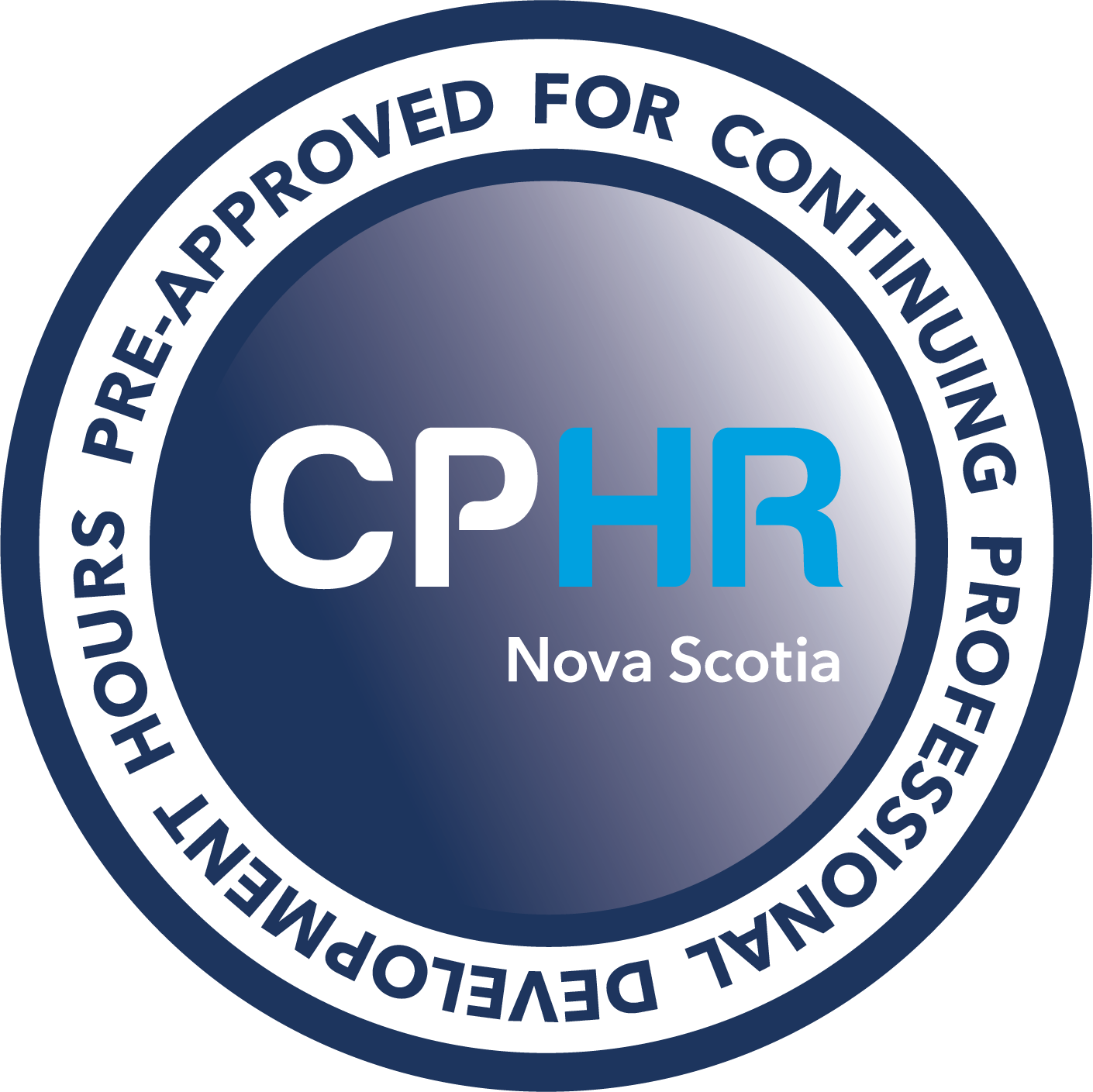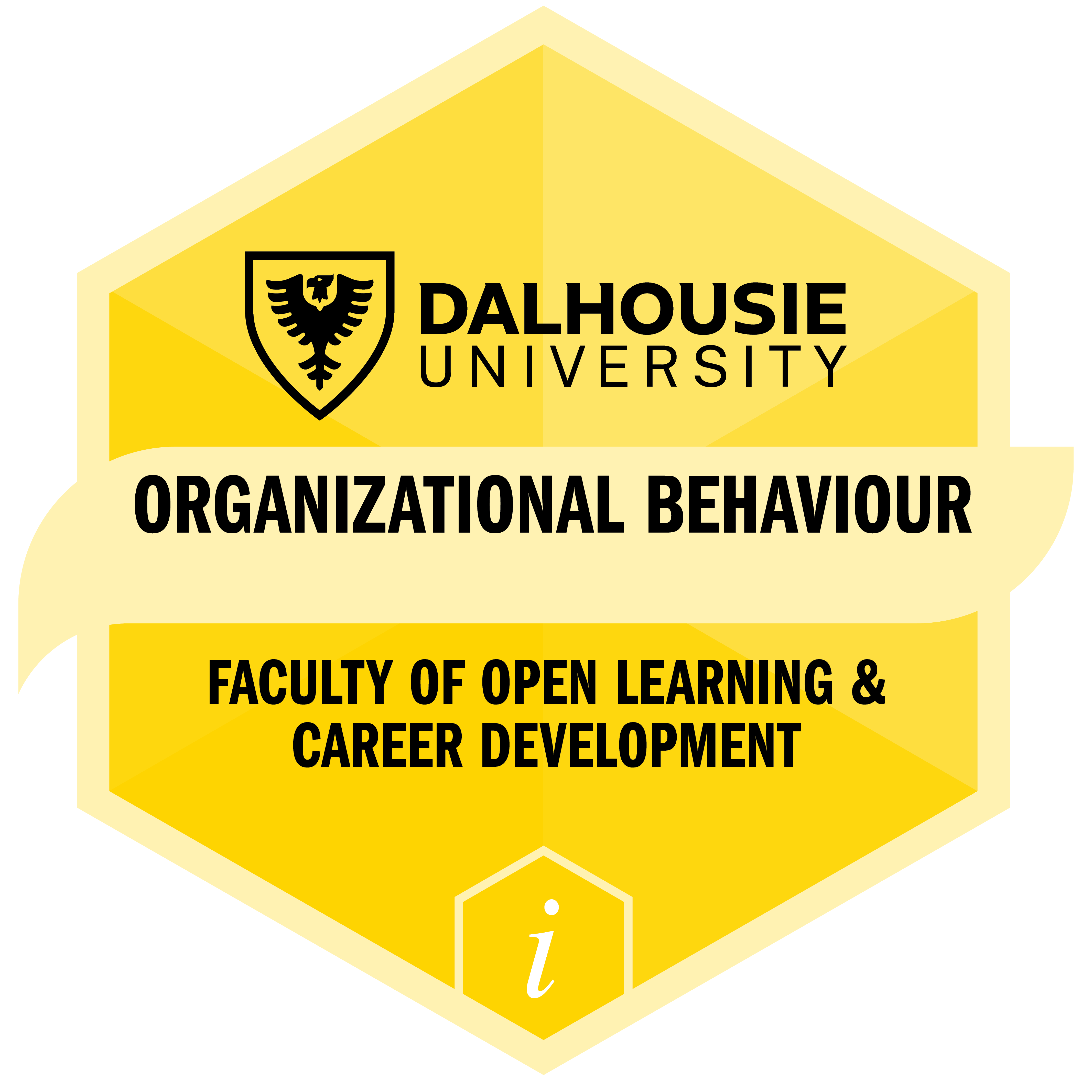Course Description
 In this course, students explore frameworks used to study and predict what people think, feel and do in and around organizations. The pandemic has introduced significant changes to how work is performed. So, a key question we will explore is – what's next and how might you and your organization prepare for it?
In this course, students explore frameworks used to study and predict what people think, feel and do in and around organizations. The pandemic has introduced significant changes to how work is performed. So, a key question we will explore is – what's next and how might you and your organization prepare for it?
Course Outline
- Introduction to Organizational Behaviour
- Individual Behaviour, Personality, Values or Strengths
- Perceiving Ourselves and Others in Organizations
- Workplace Emotions and Stress
- Employee Engagement and Motivation
- Teams
- Communications
- Decision-Making and Creativity
- Conflict
- The Future of Work
- Organizational Culture
- Change Management
What You Will Learn
Upon completion of this course, learners will be able to:
- describe why the study of organizational behaviour is important to personal and career development (evaluation);
- identify different individual behaviours and practices that influences individual effectiveness within an organization (analysis);
- reflect on individual characteristics/factors that may assist/challenge their personal ability to adapt to the workplace of the future (evaluation);
- identify actions that both individuals and the organization can take to promote diversity, equity and inclusion in the workplace (analysis);
- apply motivational concepts/models to enhance job satisfaction (application);
- evaluate factors influencing team effectiveness within organizations (evaluation);
- describe the impact of different communication practices, processes and technologies on organizational effectiveness (evaluation);
- examine the impact of creativity and innovation on organizational effectiveness (analysis);
- examine the impact of conflict on organizational effectiveness;
- explain the role that organizational culture plays in influencing (analysis); and
- predict how organizations may redesign their structure to meet future challenges and how this may impact on individual and team performance (evaluation).
Microcredential
This course provides learners with the opportunity to earn a microcredential. A microcredential is evidence of a skill or competency that is employment related. Dalhousie microcredentials are developed in collaboration with employers, industries, and/or organizations that relate to the content. A microcredential can be displayed on social media pages, digital resumes, personal webpages, and in email signatures. To earn the microcredential in this course, learners will need to successfully complete a competency-based assessment.
Notes
The Faculty of OLCD recommends an intermediate level of English language proficiency for the most effective learning and participation in our online and face-to-face courses. A list of minimum recommended scores on some common English tests can be found on our website. If you have questions about your English language proficiency and ability to succeed in this course, please contact openlearning@dal.ca.
Recommended For
- You're curious about out why people at work behave in so many different ways
- You would like to incorporate this knowledge into your workplace practices so that you and your team are engaged and motivated
- Ideally, you have some work experience (even part-time jobs provide a context for understanding and applying these frameworks)
- You have at least 3 hours each week to spend exploring the topics and reflecting on your workplace experiences
Testimonials
"I would recommend this course to anyone hoping to learn a bit more about the structures of various organizations and the importance of learning how to navigate within a team environment. I will also use the knowledge from this course to share with my team and the employers/business owners that I work with in my role. I enjoyed every module and the interactions with the other participants and the facilitator."
~ Tracy Isenor
Applies Towards the Following Certificates
- Certificate in Advanced Fire Service Administration : Required
- Certificate in Building Positive Workplace Cultures : Electives
- Diploma in General Fire Leadership : Elective - Certificate in Advanced Fire Service Administration, Elective - Certificate in Operational Planning, Elective - Certificate in Training Officer Education, Elective - Certificate in Emergency Management, Elective - Certificate in First Responder Health and Wellness, Elective - Certificate in Equity, Diversity, Inclusion and Accessibility in the Fire Service, Elective - Certificate in Wildfire and Climate Change Adaptation Management, Elective - Certificate in Fire Service Human Resource Management
- Certificate in Emergency Management : Required
- Certificate in Equity, Diversity, Inclusion, and Accessibility in the Fire Service : Required
- Fire Officer III Certification Track : Required
- Certificate in Fire Service Human Resource Management : Required
- Certificate in First Responder Health and Wellness : Required
- Certificate in Human Resource Management : Required
- Certificate in Operational Planning : Required
- Certificate in Public Sector Leadership : Electives
- Certificate in Training Officer Education : Required
- Certificate in Wildfire and Climate Change Adaptation Management : Required

 Annette has over 20 years of professional experience in Human Resources, including Talent Management, Change Management and Organizational Development. Annette’s career has spanned many industries such as retail, technology, financial services, healthcare and professional services.
Annette has over 20 years of professional experience in Human Resources, including Talent Management, Change Management and Organizational Development. Annette’s career has spanned many industries such as retail, technology, financial services, healthcare and professional services. "I create learning that sticks.“
"I create learning that sticks.“